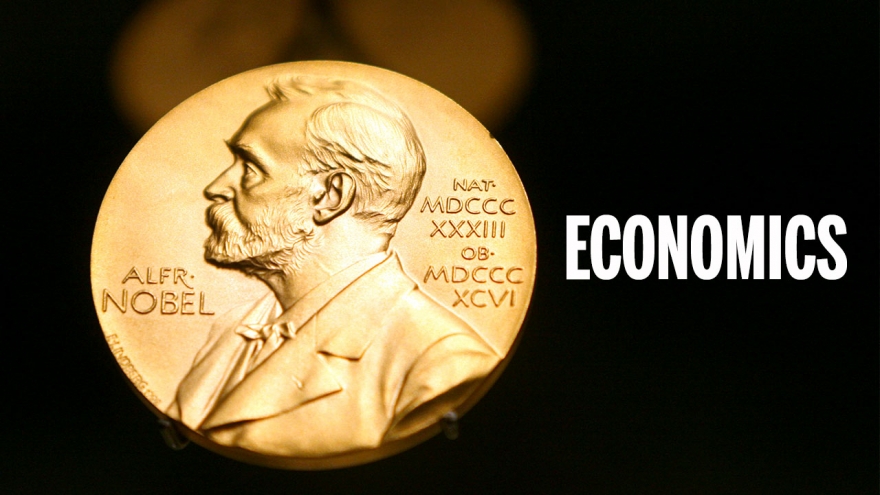The ‘Nobel Prize’ in Economics is seriously flawed People have, throughout all times, tried to form an understanding of the economic contexts using economic theories. These theories both shape and are part of society and its history. In the past century, the development of economic theories has taken place at an increasingly rapid pace. Over the last fifty years, these theories have become more mathematical and abstract in their nature. This particularly applies to the dominant economic wisdom, the so-called mainstream economic theory. The development in this direction has gone so far that even many economists themselves claim that the subject has lost touch with reality and has become a new kind of scholasticism that mostly amounts to nonsense,
Topics:
Lars Pålsson Syll considers the following as important: Economics
This could be interesting, too:
Lars Pålsson Syll writes Schuldenbremse bye bye
Lars Pålsson Syll writes What’s wrong with economics — a primer
Lars Pålsson Syll writes Krigskeynesianismens återkomst
Lars Pålsson Syll writes Finding Eigenvalues and Eigenvectors (student stuff)
The ‘Nobel Prize’ in Economics is seriously flawed
People have, throughout all times, tried to form an understanding of the economic contexts using economic theories. These theories both shape and are part of society and its history.
In the past century, the development of economic theories has taken place at an increasingly rapid pace. Over the last fifty years, these theories have become more mathematical and abstract in their nature. This particularly applies to the dominant economic wisdom, the so-called mainstream economic theory.
 The development in this direction has gone so far that even many economists themselves claim that the subject has lost touch with reality and has become a new kind of scholasticism that mostly amounts to nonsense, disconnected from real people’s thoughts and actions. Instead of mathematics and reality-detached assumptions about people as self-interested and utility-maximizing machines, there is a call for increased pluralism and open-mindedness with room for critical reflection, where different theories are allowed to compete and not predefined by the economic establishment.
The development in this direction has gone so far that even many economists themselves claim that the subject has lost touch with reality and has become a new kind of scholasticism that mostly amounts to nonsense, disconnected from real people’s thoughts and actions. Instead of mathematics and reality-detached assumptions about people as self-interested and utility-maximizing machines, there is a call for increased pluralism and open-mindedness with room for critical reflection, where different theories are allowed to compete and not predefined by the economic establishment.
The natural reaction when a theory has obviously run its course is to look for other, better theories. To build anew. But no! The prophets of irrationality instead tighten their seatbelts even harder around their own theory. They enter the toolshed — and stay inside! While the economic problems in the real world grow, they happily continue to play with the latest gadgets from the mathematical toolbox.
Just as questions are now being raised about economic crisis management, we must dare to question the economically patented artificial world and its robot imitations of humans. The economics taught at our universities has proven to be just another in a series of scientific straitjackets.
Faced with the obvious inability of economic theory to tackle real economic and financial problems, economists retreat to the wonderful world of models. Instead of constructing theories based on empirical facts, they abandon the real world and prove things about imaginary worlds. However, if the goal is knowledge of the real world, the value of these endeavours is, to say the least, unclear.
When the Sveriges Riksbank Prize in Economic Sciences in Memory of Alfred Nobel was established in 1969, there were no problems finding worthy laureates. However, over time, the pool of obvious candidates thinned, and less obvious names came up in the discussions. Both theoretical and ideological bias towards the prevailing orthodoxy became increasingly apparent.
Almost exclusively, economists representing this dominant orthodoxy were considered. Other important schools and theories were excluded beforehand. They had not dedicated themselves to developing the toolbox but had focused their research efforts on analyzing and trying to understand the conditions for economic growth and environmentally sustainable development and transformation of our economy.
Of all laureates since 1969, about two-thirds are Americans, of which half comes from a single university — Chicago.
The dilemma of the economics prize cannot be illuminated more clearly than this. The prize, in its current form, has outlived its purpose. To salvage some of its remaining prestige and restore its early glory, there are only two paths to success. Make the prize an economics award open to all — including economists with perspectives other than the prevailing orthodoxy. And/or transform the prize into a broad social science prize where researchers from disciplines other than economics can also be candidates. Surely, this would contribute to once again having worthy laureates in memory of Alfred Nobel. If the necessary changes are not implemented, we might as well scrap the prize altogether!
